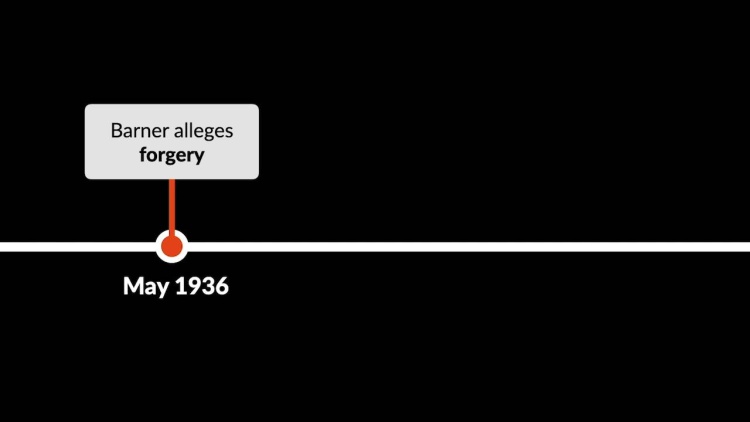Clearfield Trust Co. v. United States
United States Supreme Court
318 U.S. 363, 318 U.S. 744 (1943)
- Written by Matthew Carney, JD
Facts
The United States issued a check to an employee of the Works Progress Administration in April 1936. The check was mailed to the employee’s home. At some point, the check was intercepted and stolen by an unknown party. The thief then brought the check to a J.C. Penney Co. (defendant) store, where he forged the employee’s signature as an endorsement and exchanged the check for merchandise. J.C. Penney then endorsed the check to Clearfield Trust Co. (defendant), which endorsed it and submitted it with several other checks to the Federal Reserve Bank of Philadelphia. Twelve days after the check was issued, in May 1936, the federal employee informed his supervisor that he had not yet received his check. His supervisor then informed other members of the government. In August 1937, the United States filed suit in United States district court against Clearfield Trust, seeking to recover the lost funds. J.C. Penney eventually intervened as a defendant. The district court ruled that Pennsylvania, rather than federal law, dictated the outcome of the case. The court then held for Clearfield Trust, finding that under Pennsylvania law the government had unreasonably delayed in informing Clearfield Trust that the check was a forgery. The court of appeals reversed. Clearfield Trust appealed.
Rule of Law
Issue
Holding and Reasoning (Douglas, J.)
What to do next…
Here's why 904,000 law students have relied on our case briefs:
- Written by law professors and practitioners, not other law students. 47,100 briefs, keyed to 995 casebooks. Top-notch customer support.
- The right amount of information, includes the facts, issues, rule of law, holding and reasoning, and any concurrences and dissents.
- Access in your classes, works on your mobile and tablet. Massive library of related video lessons and high quality multiple-choice questions.
- Easy to use, uniform format for every case brief. Written in plain English, not in legalese. Our briefs summarize and simplify; they don’t just repeat the court’s language.





